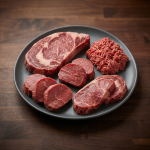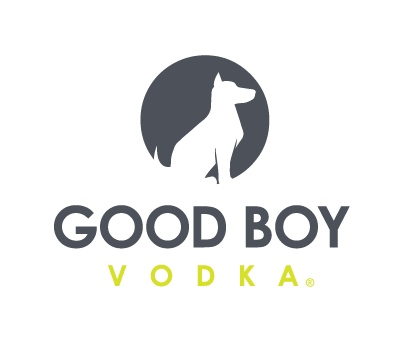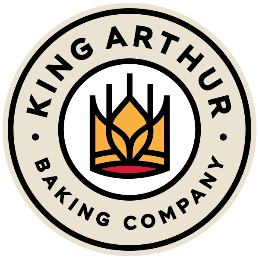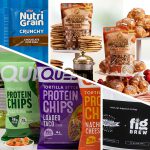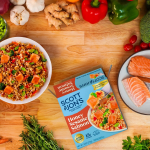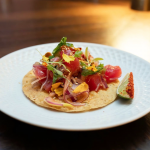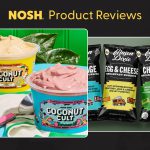Good Karma Charts New Chapter with Brand Refresh, Plantmilk Launch
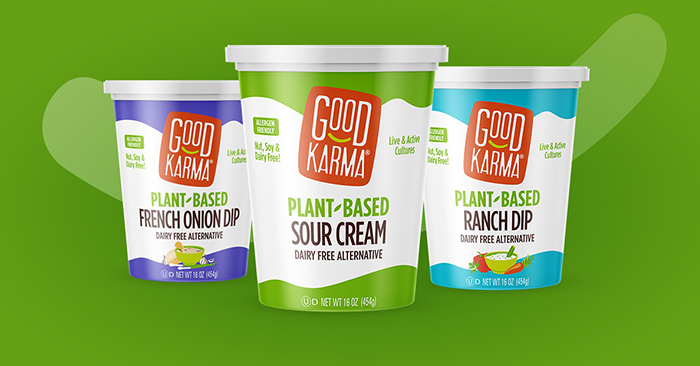
Nearly a year after being formally separated from Dean Foods, plant-based food and beverage company Good Karma is beginning a new chapter. The Colorado-based company announced today a brand refresh accompanied by the launch of a new line of refrigerated plant-based milks and a direct-to-consumer ecommerce platform.
In August 2020, Good Karma repurchased a majority share of the company from its former parent company Dean Foods, which had declared bankruptcy the prior year. The brand completed a round of funding from firms including Valor Siren Ventures, as well as existing backers 2x Consumer Products Growth Partners among other individual shareholders.
Since then, the company has been prepping a broad U.S. expansion plan that is targeting growth beyond the natural and specialty channels. That process began by building out the executive team: in October, Good Karma brought on Sarah Meis as VP of marketing. An industry veteran of over 15 years, Meis has held marketing positions at Lily’s Sweets, Purely Elizabeth, Van’s Natural Foods and WhiteWave. In November, former Farmhouse Culture VP of Sales David Forchione joined as SVP of sales.
According to founder and CEO Doug Radi, Good Karma has doubled its annual marketing budget and increased its focus on innovation as it introduces a new look for the brand and an accompanying DTC ecommerce website.
According to Meis, the refresh maintains the character of the previous branding while giving the products a more sleek and modern look and feel. The new labels will also include the Detox Project’s “Glysophate Residue Free” certification seal.
“I think even the best packaging needs to be refreshed every now and then,” Meis said. “It just becomes a fashion thing. We don’t want to be out here still in our skinny jeans. We want to be moving to those middle parts.”
The debut of the refresh coincides with the launch of Plantmilk, a new line of plant-based milk alternatives made with a blend of oat, flax and peas. Available in Original, Vanilla and Chocolate flavors, the line aims to build on the nutritional benefits of Good Karma’s flagship flaxseed products while emphasizing flavor and texture. The drinks include 5 grams of pea protein and 800 mg of Omega-3’s per serving and are sold in 59 oz. cartons for $4.99 per unit. The Original SKU contains 5 grams of sugar per serving and the company is currently developing an additional flavored milk with 0-1 grams of sugar.
Radi said the introduction of oat milk to the U.S. market has led to a shift in the plant-based milk category, particularly because the creamy texture of oat milk comes closer to dairy milk than most other alternatives. However, oat milks often lack the nutritional qualities of other non-dairy alternatives, he said. Meanwhile, In recent months, products such as Oatly have come under scrutiny for having a high glycemic index.
In addition to its taste profile and nutritional benefits, Good Karma will also emphasize how its products’ require fewer resources to produce than almond milk.
“It’s taste and nutrition,” Radi said. “And when you can package both, that’s what’s going to drive quicker adoption even within the category.”
Plantmilk is rolling out to stores now including Natural Grocers and Fresh Thyme stores with additional natural channel retailers lined up throughout the summer and fall. A shelf-stable aseptic version of the line will launch in July and will be sold online via the company’s website and Amazon. In addition to the natural channel, Radi said the brand will aim to add conventional grocers.
Radi said the brand’s “strategy has broadened” and the involvement of Valor Siren Ventures has helped open doors for Good Karma into new accounts and has prompted a revised omnichannel strategy that is driving innovation towards both fresh and shelf-stable formats. The firm’s work with companies such as Starbucks, Rich’s Foods and Gordon’s Food Service has also led to discussions about the possibility to enter foodservice.
Meis noted that Valor has also paved the path for Good Karma’s ecommerce expansion and the company will look to expand that business beyond standard direct-to-consumer.
“Through some connections that we’ve made with Valor Siren, we’re exploring some other opportunities with alternate channels, like subscription boxes and food delivery services [like Amazon Fresh],” Meis said. “So we’re just trying to be cognizant of the fact that retail is certainly part of it. but there’s also another ecom part of it that’s a really strong platform for us.”
Shelf-stable will also remain a focus. Though most of the innovation in plant-based milks is happening in refrigerated coolers, brands such as Mooala and Sproud have begun focusing on aseptic as a means of growing their market share and disrupting a new aisle of the supermarket. Radi said Good Karma has recognized the “rejuvenation” of the set and aims to take a dual placement strategy with a bifurcated approach to innovation — targeting specialized products to the dry shelf while more “mainstream” products are placed in refrigerated coolers.
Meis noted that the shelf-stable emphasis also benefits the brand’s sustainability initiatives and ecommerce focus, as the ability to forego cold chain distribution can help reduce the company’s carbon footprint and ease shipping costs
Outside of milks, Good Karma also produces a line of dairy-free dips — in Ranch and French Onion flavors — and a sour cream. The company discontinued its line of yogurts in 2020. Radi said the company aims to grow its food products and has begun selling industrial-sized units of its sour cream for ingredient use in food service channels. Looking ahead, Radi said Good Karma has a robust innovation pipeline over the next two to three years that will include additional innovations in the food space, as well as potential beverage applications.
Like Plantmilk, future innovations for Good Karma will also seek to branch outside of flaxseed and work with other plant-based ingredients. The whitespace that Good Karma sees for building on taste and nutrition in milk alternatives, he added, also applies to all non-dairy food categories as well.
“The big headline for us, as we think about these other categories in food and beverage, is how do we leverage more plants to bring unique and new benefits to the category,” Radi said. “How do we take what’s being done in the category today and do it much better. And so that’s going to be the filter we put everything through.”




